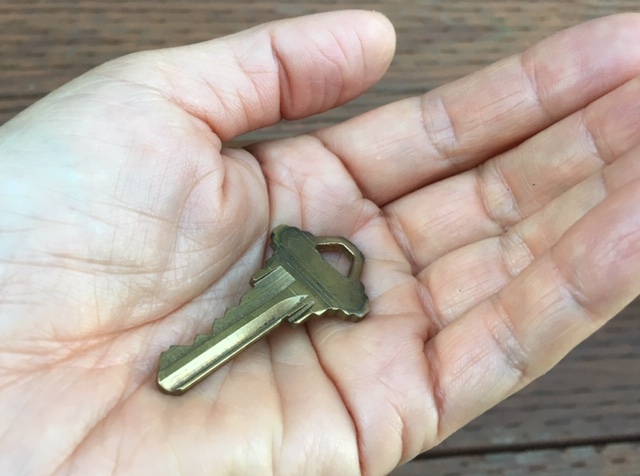***EDIT: Some of this advice may seem like wishful thinking, because in some ways it is. But acting purposefully in certain ways, even if wishful, has been known to make others respond in kind. ***
When I had five-figure consumer debt, I tried to find a place to live in San Francisco that would allow me to get rid of that debt in a year. Are you laughing? Because it is laughable unless you have a six-figure salary. Most Bay Area residents do not earn six figures. Yet most housing in the area is unaffordable to the lower-income masses. It makes no sense — unless you’re a greedy property owner sitting on a vacancy until finding a six-figure-income-earning tenant. (A single person earning $100k a year can comfortably afford $2,500 – $2,750 in housing expenses.)
There will be competition no matter what, no thanks to the lack of new housing construction. But there are actions one can take to increase chances for finding housing that don’t involve signing up for a lottery or waiting list.
Tip 1: Save Your Cash
Saving cash is especially important if your credit score is less than Good. How much should you save? Some places require one month’s rent as a security deposit plus the first month’s rent, though it’s better to have at least two months of security plus rent in the bank. But if your credit is Poor to Fair, you might need more cash. Try to save at least six months of rent; even better if you can save a year’s worth that can be paid in lump to a landlord. This cash may be the factor that beats the competition.
Saving cash is much easier if you aren’t already paying an arm and a leg for housing, maybe living in your vehicle, on the street, or on someone else’s couch. If you’re already cost-burdened by housing, consider getting a roommate. I Airbnb’d an inflatable mattress in my living room for $40 a night. My building’s management knew I was in financial trouble, and they let me get away with it for a little while. But maybe your landlord will let you use Airbnb if you remain transparent about how much money you make. (Full disclosure: that link refers you via my personal Airbnb account, and if you sign up through it, I get $300 Airbnb credit. Hey, I don’t have a salary.) Make sure to check your lease for restrictions and amend it if necessary.
At the least, make changes to your spending or lifestyle. If you drink alcohol, stop and put that drink money into a savings account. Find something else to do. I found a Scrabble game at the thrift store for $3 to occupy time with friends in lieu of going to a bar. Olympic figure skater Adam Rippon has a saving trick: use shopping desires to move money into savings.
Tip 2: Improve Credit-worthiness
Even someone with a perfect credit score can have trouble finding affordable housing, but if your FICO score is below 600, you’re in real trouble. Unfortunately, paying rent every month isn’t going to raise it. Unless you have a mortgage or other qualifying loan from a financial institution, the only way to raise your score is to have, use, and regularly pay off a credit card.
I have a credit card for exactly that purpose. I use it to pay my phone bill, an expense already in my budget. I have another credit card for emergencies, which is used rarely, and if it is used it’s paid on time every month. The key to raising a score with a credit card is to ensure payments of more than the minimum are made on time every billing period. Do not just make minimum payments, because if you use the card for other purchases, the account may appear as “revolving,” which is not good for your FICO score. Besides, you may end up paying more in interest than for the actual purchase.
Tip 3: Lobby for Decreased Rates
Many property management companies will accept tenants for market-rate units even though the rates are higher than 30% of tenants’ gross income. Many of San Francisco Housing Authority’s “affordable” units allow tenants to be cost-burdened having them pay 50% of income on rent. We need to demand rents to come down or demand legislation that makes them come down. San Francisco has such legislation in the works for a tax on vacant units. If you’re in San Francisco, tell your city supervisor to support the vacancy tax ballot; and then vote for it in November 2019. If you’re in another city, propose appropriate legislation to influence affordability for your jurisdiction. That might mean starting a petition to approve new housing construction, like multi-family buildings. As the market dictates, if there is more housing availability, the rates decrease. While we don’t have time to wait for rates to fall, we can do something.
Or just ask
You can also ask for a decrease in rent rate. Asking for a decreased rate on a unit that received a dozen applications probably isn’t going to work. But if a unit has been vacant for longer than a month, the owner may be asking too much rent for it. Let’s say your budget is $1,600. If a homeowner is asking $1,700, ask, “Would you take $1,600?” The worst that can happen is the homeowner says “No.”
A neuroscience study by Reuter et al. (2011) found that 72% of the study’s participants had a genetic predisposition for altruism. If most homeowners are altruistic, then some might accept less for rent.
Negotiation can help. It may help the owner to know if you have home repair skills, if you’re a neat freak, or if you’re industrious and will help keep the grounds clean. An example of a home repair skill is changing the stopper in a toilet tank. A good stopper costs about $6. Calling a plumber to fix a leaking toilet tank costs at least $200. These days, you don’t even need tools to change it. I just changed one myself the other day without even turning the water off.
Tip 4: Use Humor
Homeowners whose vacancies you apply for or their agents will remember you better if you make them laugh. Researchers Curry & Dunbar (2013) found that shared humor increases altruism. Altruism not only has genetic markers, but it can also be influenced by neurotransmitters in the brain. Mirthful laughter reduces stress hormone levels and releases endorphins. Granted, a property owner or agent may not have the same humor as you, but different humor and new jokes can be learned. Get the owner or agent to laugh, and you may tap into that person’s altruism.
Tip 5: Increase Your Social Circle
If anyone in the Bay Area is able to find housing below market rate that’s not a share and not subsidized, there’s a good chance the lessee was previously known to the lessor. Care Association is working to increase these chances with our forthcoming Care For Us platform. But for now, build face-to-face connections with people, because someone knows someone who has a vacant unit.
Connecting with people face-to-face these days can be difficult. If you’re uncomfortable in social situations, you may be at a disadvantage, but building connections with others is still possible. You may need to find different ways to connect with people. Some ideas:
- Spend time on Nextdoor.com if you can get an account, engage in conversations, and find opportunities to acquaint yourself with others.
- Join a Meetup.com group and participate in meetings.
- Volunteer for a charity.
- Attend neighborhood events and offer your help.
Many homeowners prefer to not rent out their vacancies but prefer peace and quiet, and the feeling of privacy. Some homeowners simply don’t want just anyone to live with them. They want someone they like and respect, and who will leave willingly if they no longer want a tenant. If you meet a homeowner like this, you need to be willing to comply.
Related to increasing the number of people in your life, connect to people who can provide positive references. Positive references should indicate that you’re reliable and trustworthy. Make sure that these people you count as references are open to being contacted by potential leasing agents and homeowners. If finding references is difficult, then you’ve got work to do that might involve taking a sober look in the mirror. I’ve been there.
Tip 6: Find a Roommate
This follows increasing your social circle. As you get acquainted with more people, you might find that certain personality types are more compatible with you than others. Jungian personality typology can help with this. My personal favorite resource is Humanmetrics.com. The website appears Web 1.0, but the content can be useful if tried. Maybe a potential roommate is a homeowner with a spare room.
What if making connections to people is hard for you? Psychological researcher Abigail Marsh recommends learning to stop making yourself important to learn to have compassion. Compassion leads to acts of kindness. People notice acts of kindness. Acts of kindness draws people in and opens up opportunities for making connections.
Tip 7: Lower Your Expectations
The media is filled with luxury. Popular Instagram posts show mansions, designer goods, and everything else expensive. Celebrities popularize wealth. Yet less than 100 years ago, up to 20 families crowded into one 4-story New York City building just 25 feet wide and 100 feet deep. If five families lived on one floor, each family may have had roughly 450 square feet of space. Today, people with low income expect multiple bedrooms in more than 1,000 square feet for a single family. Privacy and having one’s own room has become so important that renters are willing to be cost-burdened, paying 50% or more of their income for housing.
Spending more than half of one’s income on housing will not improve life. If anything, it will perpetuate impoverishment. Look for housing that costs 30% to 33% of your gross income, including the cost of utilities. This may mean finding a room instead of an apartment. It may mean sharing a studio. It may mean moving away. If you’re fortunate, it may mean finding an altruistic landlord with a vacancy and taking it even if it’s not the perfect place.
Tip 8: Simplify Your Life (Go Tiny)
Many people who have downsized their belongings, keeping only what they need, or keeping only what sparks joy a la Marie Kondo, have found themselves feeling less anxious and more stable. Downsizing belongings thus enables requiring less space. Less space is less maintenance and lower cost. By downsizing, living expectations no longer require lowering; rather, they simply change.
Consider joining the tiny house movement, influenced by Sonoma County resident Jay Shafer, known by the tiny house community as the godfather of the movement. If a family of eight 100 years ago could share 450 square feet, then you can live in a tiny house, which ranges in size. Shafer’s house is 89 square feet, but they can be larger. In general, going tiny means moving out of a conventional house or apartment into much smaller spaces. Tiny houses on wheels tend to be no more than 360 square feet.
There are barriers to tiny house living, especially in the Bay Area. For one, they aren’t easy to find, and empty lots are expensive. Nor is it easy to find a place to park a tiny house on wheels and live in it legally. RV parking is limited in the Bay Area, but people have been able to occupy houses on wheels parked on RV pads. Maybe someone in your social circle knows someone with a driveway where one could park. Or maybe rent a tiny house on Airbnb, connect to the owner, and see if becoming a tenant is possible. When I managed an Airbnb listing, I got tired of the revolving door and settled with a roommate.
Municipalities vary in their support of tiny houses. Sonoma County planning department recognizes tiny houses as livable structures. And Marin County has a temporary waiver on the $1,500 permit fee for building separate accessory dwelling units and junior dwelling units inside the main house up to 500 square feet. Alternatively, 120-square-foot structures are allowed without a permit. David Smith in Marin builds attractive structures this small called Backyard Eichlers. His sheds have been installed in the backyards of both Marin and San Francisco counties. For those living with family, it’s not exactly moving out, but it can be an improvement.
The best part of tiny house living in my opinion is that the options are endless, especially for houses on wheels. They are only limited by lack of creativity. Maybe someone in your family has a spot in the yard or driveway. Or reach out to your social circle for leads. Search online for ideas, educate yourself, start dreaming, and get yourself a home.
Epilogue
I know that there are vacant apartments in San Francisco that have been empty for years. Care Association wants to reach out to their owners and encourage altruism that they may offer them for affordable rents. We are building the Care For Us website so that property owners can get acquainted with people looking for housing, and we hope they will make these vacant spaces available to users on the site. But we need to populate the site.
Participate in the demonstration phase of our Care For us project and build a biography page to tell your story. Then we will direct potential lessors to the site. To participate, fill out this form.
References:
Curry, O., & Dunbar, R. (2013). Sharing a joke: The effects of a similar sense of humor on affiliation and altruism. Evolution and Human Behavior,34(2), 125-129. doi:10.1016/j.evolhumbehav.2012.11.003
Reuter, M., Frenzel, C., Walter, N., Markett, S., & Montag, C. (2011). Investigating the genetic basis of altruism: The role of the comt val158met polymorphism. Social Cognitive and Affective Neuroscience,6(5), 662-668. doi:10.1093/scan/nsq083
Yim, J. (2016). Therapeutic benefits of laughter in mental health: A theoretical review. The Tohoku Journal of Experimental Medicine,239(3), 243-9. doi:10.1620/tjem.239.243


